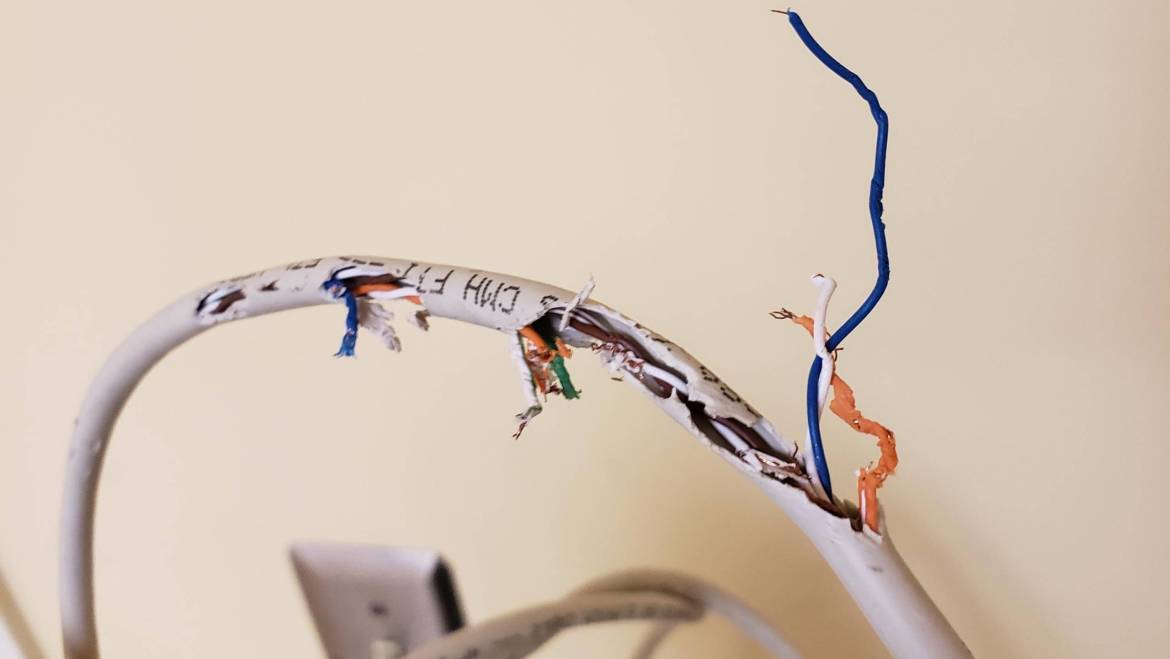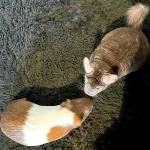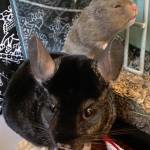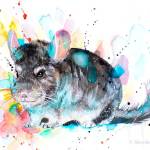Chinchillas are adorable, furry creatures that make great pets. They are known for their soft and plush coats, their energetic personalities, and their love for exercise. Chinchillas are also very curious and love to explore their surroundings, which can sometimes lead to them chewing on things they shouldn’t. One common concern among chinchilla owners is whether their pets can chew on wires. In this article, we will explore this topic in detail and provide you with all the information you need to keep your chinchilla safe and healthy.
Why do Chinchillas Chew?
Chewing is a natural behavior for chinchillas. In the wild, they use their teeth to gnaw on tree bark and other tough materials to wear down their teeth, which continuously grow throughout their lives. In captivity, chinchillas still have the instinct to chew, and it is important to provide them with safe and appropriate items to satisfy their chewing needs.
Chinchillas have very strong teeth that can easily gnaw through wood, plastic, and other materials. They can also cause damage to wires and electrical cords if they are not properly protected. This is why it is essential to provide your chinchilla with plenty of safe chewing options and to take steps to protect your home from potential hazards.
Can Chinchillas Chew Wires?
Yes, chinchillas can chew wires. If your chinchilla gets hold of a wire, they may start gnawing on it out of curiosity or boredom. This can cause serious damage to the wire and can create a fire hazard in your home. It can also be dangerous for your chinchilla, as they could receive an electrical shock or burn if they chew through a live wire.
Chinchillas are particularly attracted to the insulation around wires, which can contain chemicals that are harmful to them if ingested. The insulation can also get tangled around their teeth or in their digestive system, which can lead to serious health problems. For these reasons, it is crucial to keep wires and electrical cords out of your chinchilla’s reach.
How to Protect Your Wires from Chinchillas?
There are several steps you can take to protect your wires and electrical cords from your chinchilla:
- Keep Wires Out of Reach: The simplest solution is to keep wires and electrical cords out of your chinchilla’s reach. This means hiding them behind furniture or using cord covers to keep them out of sight.
- Use Cord Covers: Cord covers are plastic tubes that fit over your electrical cords, providing a barrier between the cord and your chinchilla. These are a great way to protect your wires and to prevent your chinchilla from chewing on them.
- Use PVC Pipes: Another way to protect your wires is to use PVC pipes. Cut the pipes to the appropriate length and thread your electrical cords through them. This will create a barrier between your chinchilla and the cords.
- Use Bitter Sprays: Bitter sprays are a non-toxic deterrent that you can apply to your wires and electrical cords to discourage your chinchilla from chewing on them. These sprays have a bitter taste that chinchillas find unpleasant.
- Provide Plenty of Safe Chewing Options: Finally, it is important to provide your chinchilla with plenty of safe chewing options to satisfy their chewing needs. This includes wooden toys, hay cubes, and chew sticks. By providing your chinchilla with plenty of options, they will be less likely to chew on things they shouldn’t.
What Happens If Your Chinchilla Chews a Wire?
If your chinchilla chews on a wire, it is important to act quickly to prevent further damage or injury. The first step is to remove your chinchilla from the area and to make sure that they are safe and not in contact with any live wires. If the wire is still intact, turn off the power supply to the affected area to prevent electrical shock.
Next, check your chinchilla for any signs of injury. If they have chewed through a live wire, they may have received an electrical shock or burn. Signs of electrical shock include muscle spasms, difficulty breathing, and loss of consciousness. If you suspect that your chinchilla has been electrocuted, seek veterinary care immediately.
If your chinchilla has ingested any wire or insulation material, monitor them closely for signs of illness. Ingesting wire or insulation can lead to blockages in the digestive system or poisoning from the chemicals in the insulation. Symptoms of wire ingestion or poisoning include lethargy, loss of appetite, and diarrhea. If your chinchilla shows any of these symptoms, contact your veterinarian right away.
Preventing Wire Chewing during Mating Season
Chinchillas have a breeding season that occurs between November and May, with peak mating season between December and February. During this time, male chinchillas become more aggressive and territorial, and may start chewing on things they wouldn’t normally chew on. This includes wires and electrical cords.
To prevent wire chewing during mating season, it is important to provide your chinchilla with plenty of stimulation and exercise. This can include providing them with new toys, allowing them to explore new areas of your home, and increasing their exercise time. You can also provide your male chinchilla with a separate area to retreat to if they become too aggressive.
It is also important to supervise your chinchilla during mating season to ensure that they are not chewing on wires or other hazards. Keep an eye on your chinchilla’s behavior and provide them with plenty of safe chewing options to distract them from potentially dangerous items.
In conclusion, chinchillas can and will chew on wires if given the opportunity. This can lead to serious damage to your wires and electrical cords, as well as create a potential fire hazard in your home. To protect your chinchilla and your home, it is important to keep wires and electrical cords out of your chinchilla’s reach and to provide them with plenty of safe chewing options.
If your chinchilla does chew on a wire, it is important to act quickly to prevent further damage or injury. Remove your chinchilla from the area and turn off the power supply to the affected area. Check your chinchilla for any signs of injury or illness, and seek veterinary care if necessary.
By taking the necessary precautions, you can ensure that your chinchilla is safe and happy in their environment. With proper care and attention, your chinchilla can live a long and healthy life as a beloved pet.







